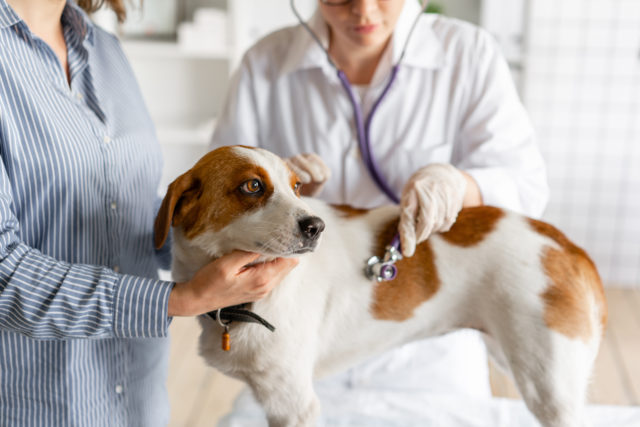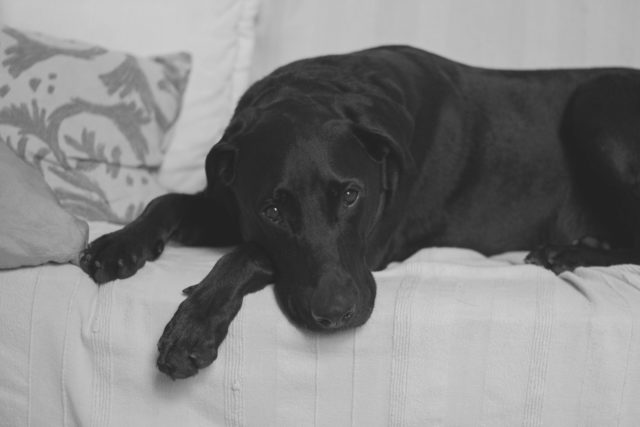You’ve likely heard about Coronavirus by now. It can be more than a little scary when a virus like this seems to spread so quickly, but as dog lovers, many of us immediately turn our thoughts to our pups at times like these. Especially if you’re familiar with the phrase, “Canine Coronavirus.”
“Can my dog get Coronavirus?” Or worse, “Can I give my dog Coronavirus?”
First and foremost: don’t panic.

What is Coronavirus?
Though people are largely referring to the current illness at just “Coronavirus,” the term actually applies to a family of viruses that look similar to a “crown” when viewed under an electron microscope, called Coronaviridae. The current strain, which was first observed in December, is being called 2019-CoV. Other strains you may have heard of include SARS-CoV and MERS-CoV. Both of which caused a similar fuss, but have since settled down.

2019-CoV is thought to have originated at a wet market in Wuhan, China, through the consumption of snakes that were infected with the virus. As of today, there are over 8,100 confirmed cases in China, but only 112 infected people in other countries, including 6 in the United States – all of whom appear to have visited Wuhan, China recently. (Numbers updated: 1/30/2020)

Can animals get Coronavirus?
Yes. The current strain is actually being linked to snakes sold at a market in Wuhan. In this case, it appears that animals carrying the virus were able to pass it to a human host through the consumption of its meat. (This is still being investigated by the Center for Disease Control.)
Can my dog get Coronavirus?
There is Canine Coronavirus Disease – however, it does not seem to be linked to this strain.
Canine Coronavirus gets its name from the same characteristic that human viruses get theirs – a round, crown-like appearance when viewed under an electron microscope. Most cases are caused by dogs eating poop that carries the virus. Another reason to keep his mouth away from any piles he might find.
According to VCA Hospitals, Canine Coronavirus Disease does NOT affect humans.
What are the symptoms of Coronavirus in dogs?
Coronavirus doesn’t often cause symptoms in dogs, but on the few occasions that it does, you may notice a sudden onset of diarrhea, along with lethargy and poor appetite. Your dog’s diarrhea may contain blood or mucus, and if the infection occurs while your dog is suffering from another disease, like Parvovirus, it will cause it to become more severe.
Of course, these symptoms could point to a number of other issues, so be certain to see your vet.

Can I get Coronavirus from my dog?
At this point, there have been no reported cases of 2019-CoV in dogs.
Previous strains of Coronavirus were traced back to human-animal contact. SARS-CoV appears to have been caused via contact with civet cats, and MERS from dromedary camels. 2019-CoV is thought to have first been transferred to humans through snakes that were sold at a market in Wuhan. After infecting the human host, the virus causes respiratory issues and is spread from human-to-human, often through the air, via a sneeze or cough.
Can I give my dog Coronavirus?
If you believe that you may be infected, you should immediately contact your doctor, and let them know you suspect that you may be infected before going to see them, so they can take precautions. See more about preventing the spread of Coronavirus at CDC.gov.
Previous strains of Coronavirus show that mammals, like camels and civet cats CAN get Coronavirus and infect humans. However, there doesn’t appear to be any cases of humans carrying Coronavirus infecting their pets.
Good hygiene practices should always be your first defense – wash your hands regularly, cover your mouth when you sneeze. For your dog – try to keep him from eating poop, pick up after him immediately when he does his business, and bathe him regularly.
Learn more about 2019-nCoV at CDC.gov.
 Toledo, United States.
Toledo, United States.